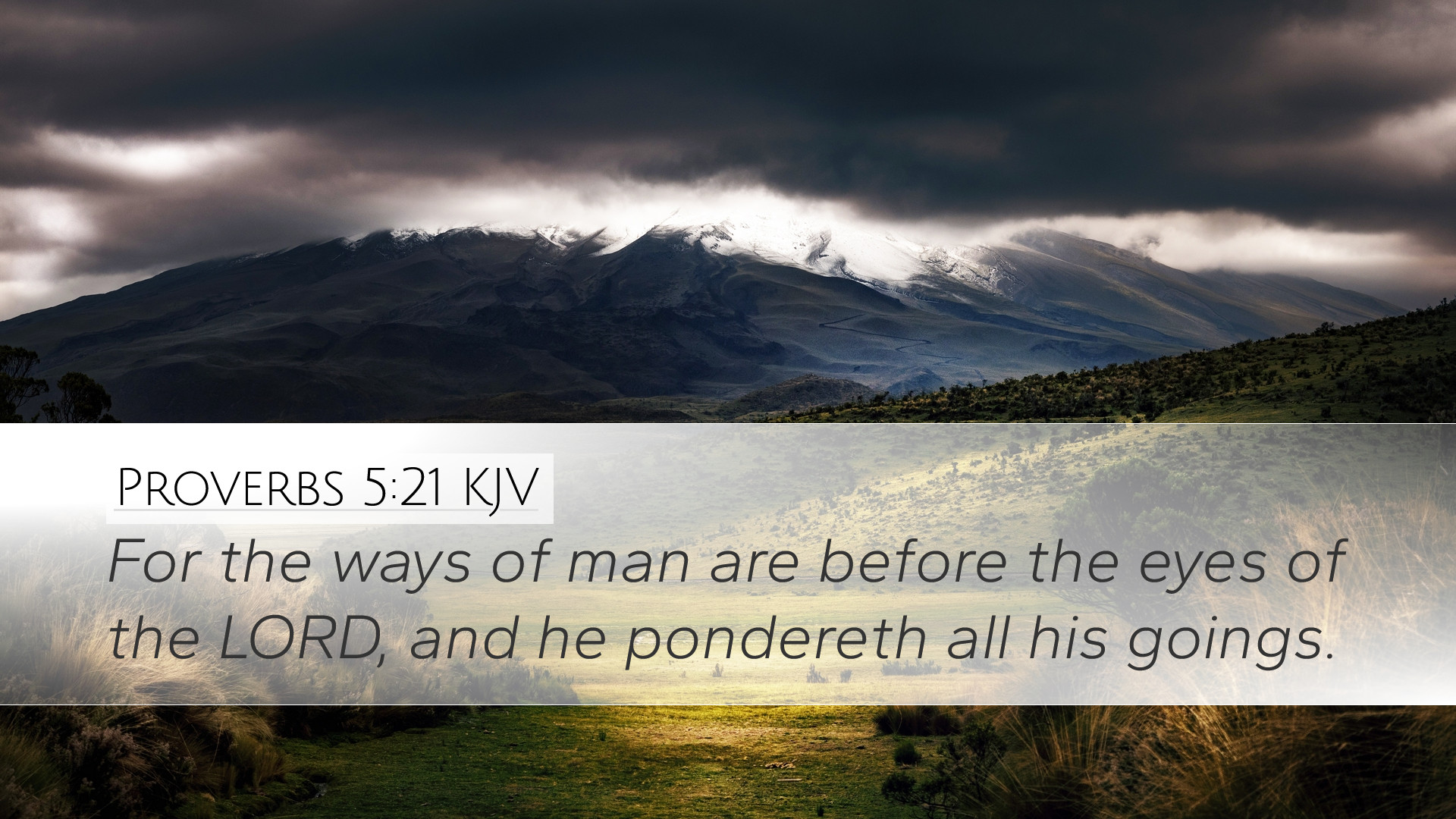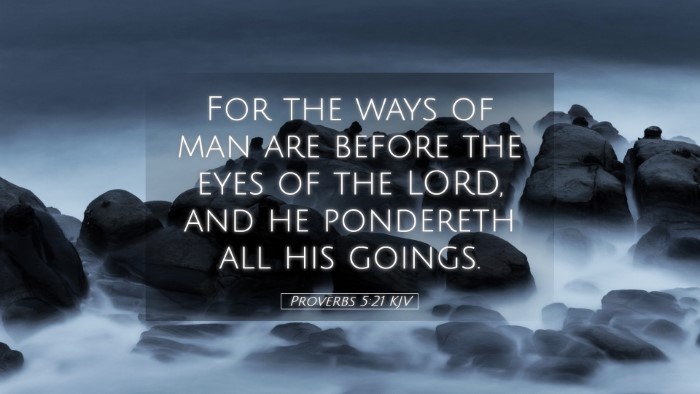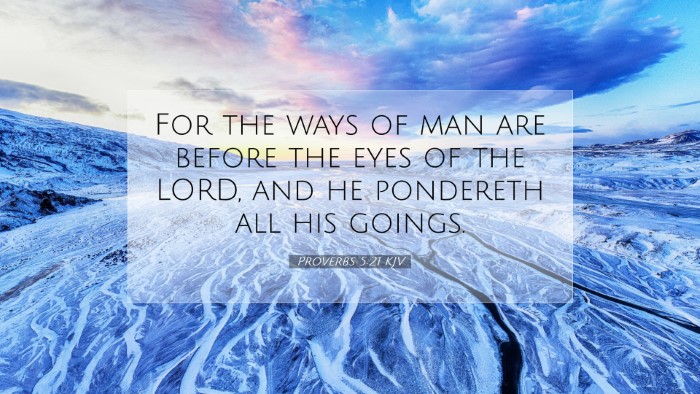Commentary on Proverbs 5:21
Verse Context: Proverbs 5:21 states, "For a man’s ways are before the eyes of the Lord, and he ponders all his paths." This verse serves as a foundational reminder of God's omnipresence and omniscience, stressing the significance of living a life that is aware of divine scrutiny.
Insights from Matthew Henry
Matthew Henry notes that this passage emphasizes the divine oversight of human behavior. He asserts that every action is exposed to God's view, and thus individuals should conduct themselves with this awareness. Henry points out that the Lord not only sees our actions but also "ponders" or weighs our paths, suggesting that He takes into account the intentions and motivations behind our actions.
Furthermore, Henry encourages believers to cultivate a heart of wisdom that aligns its desires and actions with God's will. He suggests that when one realizes the Lord's constant observation, it fosters accountability and a desire for righteousness.
Reflections by Albert Barnes
Albert Barnes elaborates on the concept of divine observation, affirming that God’s attention is eternally directed towards His creation. Barnes particularly highlights the phrase "a man's ways are before the eyes of the Lord" as an assertion of God’s active engagement in human affairs. He opines that this awareness should incite caution and reflection regarding one's choices and lifestyle.
Moreover, Barnes stresses that divine judgment is rooted not only in actions but also in the thought processes underlying those actions. He calls the reader to pursue a life marked by integrity, advocating for the alignment of one’s internal aspirations with God’s commandments and wisdom, presenting this as essential for spiritual growth.
Exegesis by Adam Clarke
Adam Clarke provides a deeper cultural and theological analysis of Proverbs 5:21. He emphasizes the imagery of paths, which serve as metaphors for life’s choices and directions. Clarke suggests that the “paths” refer to one's moral and spiritual journey and that God is actively involved in contemplating our trajectories.
Clarke also addresses the importance of self-examination in light of this truth. He argues that recognizing God’s scrutiny leads to greater mindfulness in decision-making. The alternative, he warns, is a life that drifts away from divine wisdom and guidance, resulting in negative consequences both personally and spiritually.
Theological Implications
- Divine Omniscience: The verse affirms God's omniscient nature, asserting that nothing escapes His awareness.
- Accountability: Believers are reminded of their accountability before God and the implications of their actions on their spiritual state.
- Moral Pathways: The imagery of paths invites reflection on the moral choices one makes, encouraging a pursuit of paths aligned with divine wisdom.
- Consequences of Actions: The emphasis on pondering one's ways indicates that individuals must consider the repercussions of their choices not just in a temporal sense but also in the eternal context.
Applications for Life
- Self-Reflection: This verse challenges believers to engage in regular self-assessment, examining whether their actions reflect a heart aligned with God's will.
- Wise Living: Pastors and leaders are encouraged to exemplify a life that acknowledges God’s watchfulness, setting an example for their congregations.
- Dependency on God: As individuals discern their paths, they are reminded to seek divine guidance through prayer and scripture.
- Teaching Future Generations: The importance of instilling a sense of moral responsibility in younger members of the community or church is paramount, emphasizing that they are always observed by God.
Conclusion
The insights drawn from Proverbs 5:21 are profound and far-reaching. They call individuals, particularly those in leadership, to live lives marked by integrity, accountability, and an ever-present awareness of God’s omniscient gaze. As they navigate the complexities of life, the exhortation to ponder their paths becomes a guiding principle, encouraging a deeper relationship with God that permeates every aspect of their existence.


